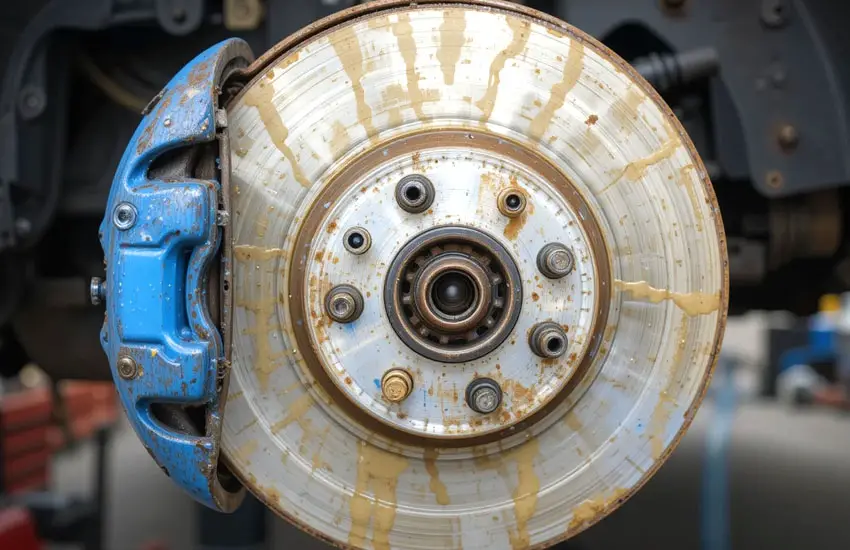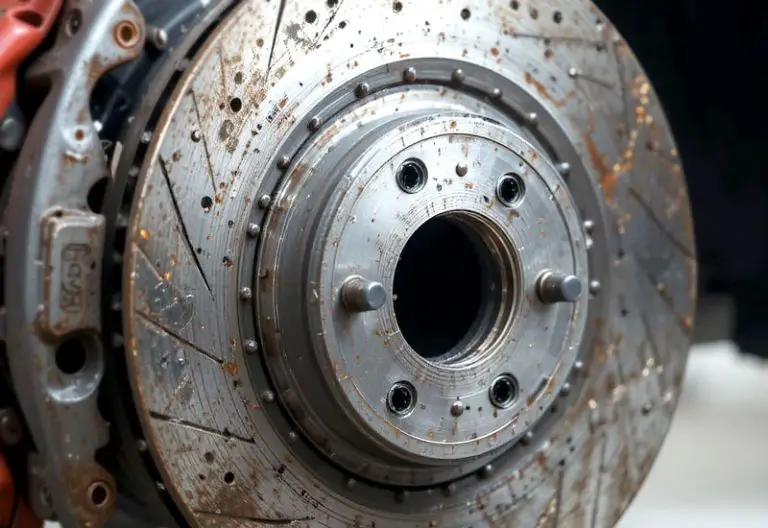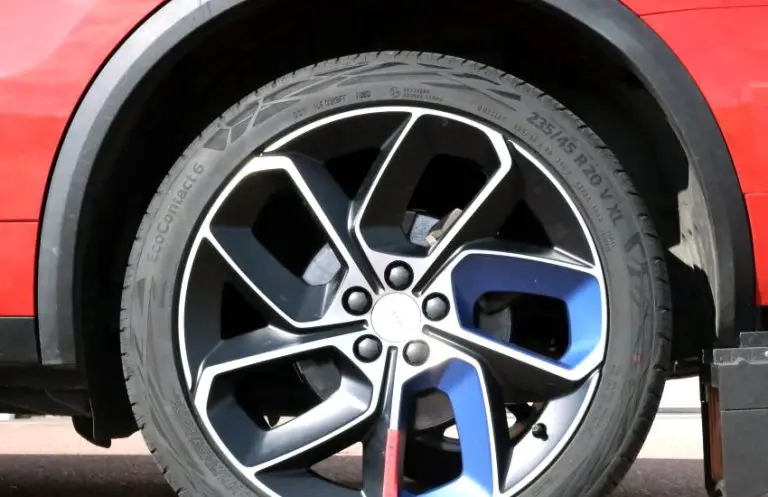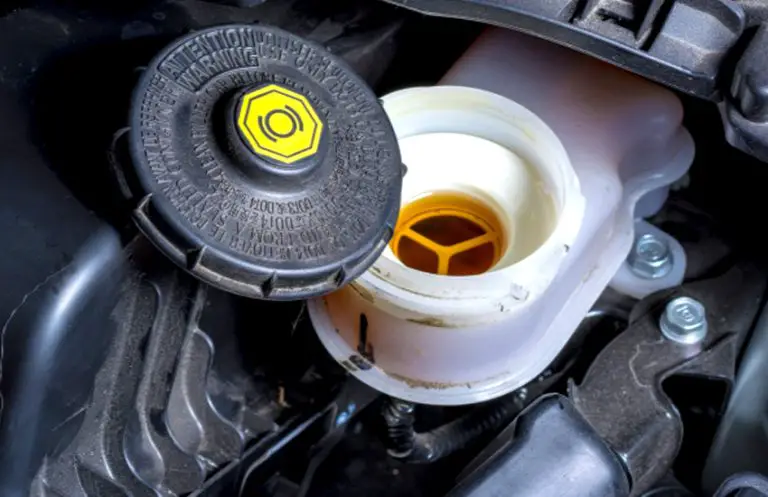Have you ever wondered if brake fluid could damage the rubber components in your car’s braking system? Well, you’re not alone. It’s a common question that car owners often ask, especially when maintaining or replacing parts. In this guide, we’ll break down everything you need to know about how brake fluid affects rubber parts and why proper maintenance matters. Buckle up, because this is about to get informative!

What Brake Fluid Is and Its Role in the Braking System
What Exactly Is Brake Fluid?
Brake fluid is a crucial component in any vehicle’s braking system. It’s a specially designed liquid used to transfer the force you apply to the brake pedal into the braking components (like the brake pads and calipers) through hydraulic pressure. Without brake fluid, the entire hydraulic system wouldn’t function, and your car would be stuck with ineffective brakes. But what’s more interesting—and maybe a little concerning—is the impact brake fluid has on the materials it comes in contact with, particularly rubber.
The Composition of Brake Fluid
Brake fluid is usually made from one of three base types: glycol-based, silicone-based, or mineral oil-based. The most common type you’ll encounter is glycol-based, often referred to as DOT fluid. Each type of brake fluid serves a specific purpose, but one thing they all have in common is their ability to absorb moisture over time. Moisture can be a major issue for brake fluid, as it can lower the boiling point, making your brakes less effective. But when it comes to rubber components, it’s not just moisture you have to worry about—it’s the fluid itself.
Brake Fluid and Rubber: The Interaction
When brake fluid leaks or comes into contact with rubber parts, it can have a damaging effect. Rubber seals, hoses, and o-rings in the braking system can begin to swell, soften, and degrade over time when exposed to brake fluid. This happens because brake fluid can break down the chemical bonds in the rubber, leading to deterioration. The rubber loses its structural integrity, which can cause leaks, brake failure, or other issues in your braking system.
Types of Rubber Components at Risk
The rubber components most at risk in your braking system include:
- Brake lines and hoses: Rubber brake lines connect the various components of the braking system. They carry brake fluid from the master cylinder to the brakes. If the brake fluid seeps out or if it leaks due to damaged hoses, the integrity of the braking system is compromised.
- Seals and o-rings: These small rubber parts prevent fluid leaks and ensure that brake fluid stays where it’s needed. When brake fluid seeps into these seals, it can lead to a loss of hydraulic pressure and inefficiency in your braking system.
- Master cylinder seals: The master cylinder, responsible for pumping brake fluid, uses rubber seals to keep the system airtight and sealed. If brake fluid degrades these seals, it can lead to a failure of the braking system.
How Brake Fluid Damages Rubber Components
Breakdown of Rubber Over Time
So, why does brake fluid have this effect on rubber components? It all comes down to chemical interactions. Most rubber used in car parts is synthetic rubber, made to resist wear and tear. However, it’s not completely impervious to chemicals. Brake fluid, especially glycol-based fluid, can cause rubber to swell, soften, or even crack. The swelling occurs because brake fluid breaks down the rubber’s molecular structure, allowing it to absorb more fluid and expand.
Once rubber has absorbed brake fluid, it loses its elasticity and becomes brittle. As a result, it starts to lose its ability to create effective seals, and the risk of leaks increases. For example, if you have a damaged or degraded rubber seal around your brake caliper, it could cause fluid leakage, making your brakes less responsive.
The Temperature Factor
Another thing to consider is temperature. Brake fluid operates under extreme conditions, particularly during heavy braking or in high-performance vehicles. This results in high temperatures within the braking system. Under these conditions, the rubber components, especially the seals, become more vulnerable. Brake fluid combined with heat can accelerate the breakdown of rubber, making it easier for fluid to penetrate the rubber’s surface.
The rubber components in your braking system are also constantly under pressure, which makes them more prone to damage. When brake fluid seeps into these stressed components, the deterioration process speeds up, leading to weakened seals or hoses that could eventually fail, resulting in brake fluid leaks.
Moisture and Contamination
As mentioned earlier, brake fluid can absorb moisture from the air over time. This is a major concern because the presence of water in the brake fluid can reduce the fluid’s boiling point and increase the corrosive effects on metal components. But it’s not just the water; brake fluid also attracts dirt, road salts, and other contaminants. When these elements mix with the fluid, they can cause even more damage to the rubber components. For example, contaminants can cause abrasions on the rubber surface, leading to quicker degradation.
Preventative Measures to Avoid Damage
To prevent brake fluid from deteriorating your rubber components, regular brake fluid maintenance is essential. Replacing your brake fluid at recommended intervals (usually every 1 to 2 years, depending on the type of vehicle and driving conditions) is the most effective way to prevent moisture absorption and contamination. Also, inspecting your brake lines, seals, and hoses for any signs of wear and tear can help you spot potential issues before they become serious problems.
Symptoms of Brake Fluid Leaks and Rubber Damage
Identifying Brake Fluid Leaks
Brake fluid leaks are one of the most noticeable signs that something is wrong with your braking system. If you notice that your brake fluid levels are consistently low, you could be dealing with a leak. Some common signs of brake fluid leaks include:
- Softer or spongier brake pedal: This happens when air or moisture enters the brake lines due to a leak, reducing hydraulic pressure.
- Visible brake fluid on the ground: This is a telltale sign of a leak. Brake fluid is often amber or clear and has a distinct oily texture.
- Reduced braking performance: If you notice that your vehicle isn’t stopping as quickly as usual or you have to press the pedal harder, this could indicate a loss of brake fluid due to a leak.
If you experience any of these symptoms, it’s vital to get your vehicle inspected immediately. A brake fluid leak can lead to complete brake failure, which is extremely dangerous.
Effects on Other Components
When brake fluid leaks and interacts with rubber components, the damage is often gradual but can be extensive. For instance, rubber brake lines might begin to swell, which could reduce the internal diameter of the line. This can cause restrictions in fluid flow, further affecting braking performance. Over time, degraded rubber parts might also result in rust and corrosion of metal components within the braking system.
Importance of Timely Repairs
When you notice any signs of brake fluid damage, it’s essential to act quickly. Ignoring a brake fluid leak or failing to replace worn-out rubber components can cause further damage to the system, making repairs more expensive and complicated. More importantly, it could compromise your safety.
How to Protect Rubber Components from Brake Fluid Damage
Use of Rubber-Friendly Brake Fluids
Choosing the right brake fluid can help minimize the risk of rubber degradation. Some manufacturers create brake fluids designed to be gentler on rubber components. For example, silicone-based fluids are known to be less harsh on rubber and have a lower chance of causing damage. However, these fluids might not be compatible with all vehicles, so always check your car’s manual to ensure you’re using the right type of brake fluid.
Regular Inspections and Maintenance
Another preventive measure is to regularly inspect your braking system. If you’re comfortable doing it yourself, check for any signs of fluid leakage around the brake lines, hoses, and seals. You should also check for any cracks or softness in the rubber components. If you’re not sure what to look for, a professional mechanic can perform these checks during regular vehicle maintenance.
Keep Brake Fluid Clean
While brake fluid naturally attracts moisture and contaminants over time, you can reduce these effects by ensuring that your brake fluid is flushed and replaced at recommended intervals. Clean brake fluid helps maintain the health of rubber components, reduces the chance of contamination, and keeps your braking system working at optimal levels.
Store Brake Fluid Properly
If you keep spare brake fluid at home for future use, make sure to store it in a cool, dry place. Exposing brake fluid to extreme temperatures can cause it to break down faster, making it more likely to damage rubber parts when it is used. Always ensure the fluid is sealed tightly to prevent contamination from moisture or dirt.
I hope this helps you eliminate those pesky concerns about brake fluid and rubber components! Regular maintenance and understanding how brake fluid interacts with your car’s parts can help keep your braking system in tip-top shape. If you notice any leaks or degraded rubber, don’t wait too long to address the issue—your safety depends on it!
Are These Questions in Your Mind?
Is it safe to use silicone-based brake fluid?
Silicone-based brake fluids are generally safer for rubber components since they are less likely to cause swelling or degradation. However, they may not be compatible with all vehicles, so always refer to your car’s manual before using them.
Can brake fluid be mixed with other fluids?
It is not recommended to mix brake fluid with other types of fluid, as this can affect the performance and safety of your braking system. Always use the type specified by your vehicle’s manufacturer.
Do I need to replace my brake fluid if it looks dirty?
Yes, if your brake fluid looks dark or contaminated, it’s time to replace it. Dirty brake fluid can damage your braking system, including rubber seals and hoses.
Is it possible to prevent all rubber damage caused by brake fluid?
While it’s not always possible to prevent all damage, proper maintenance, regular inspections, and using the right type of brake fluid can significantly reduce the risk of rubber component deterioration.
Can brake fluid damage paint on my car?
Yes, brake fluid can damage the paint if it comes in contact with the exterior of your car. Always clean up any spills promptly to avoid damaging your car’s paint.
Is it okay to use old brake fluid?
Old brake fluid should be replaced because it may have absorbed moisture and contaminants, which could reduce its effectiveness and cause damage to the braking system.
Do I need to change rubber components after a brake fluid leak?
Yes, if rubber components have been exposed to brake fluid for an extended period, they may have become damaged. It’s best to replace them to ensure your braking system functions properly.
Can I replace brake fluid myself?
Yes, replacing brake fluid is a DIY task, but it requires caution. If you’re not comfortable doing it, have a professional perform the replacement.
Is brake fluid flammable?
Yes, brake fluid is flammable. Always store it properly and avoid open flames near brake fluid to prevent accidents.
Can I drive with a small brake fluid leak?
No, even a small brake fluid leak can cause your braking system to lose efficiency, posing a serious safety risk. Get it fixed immediately.


